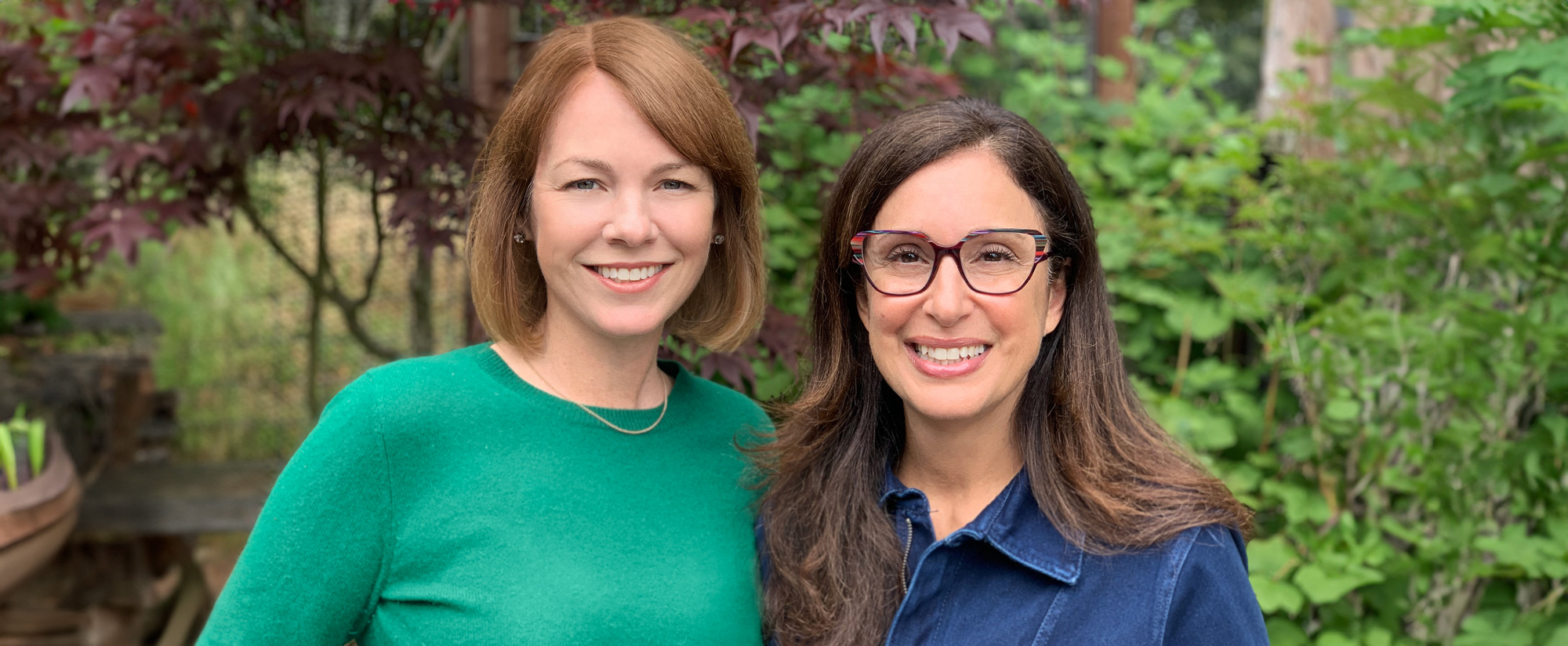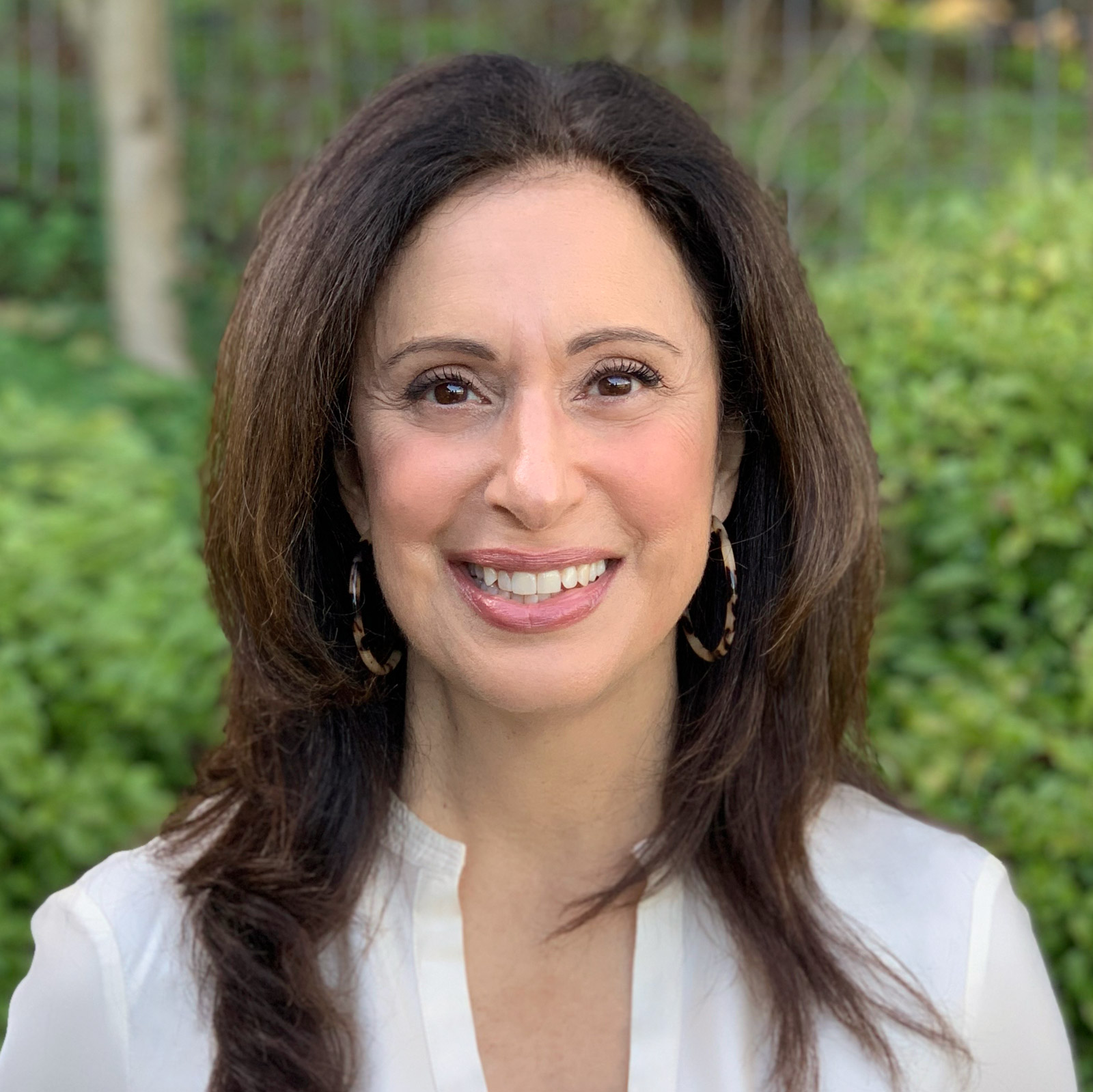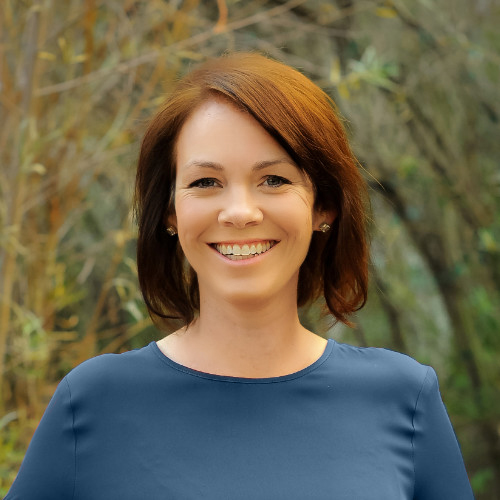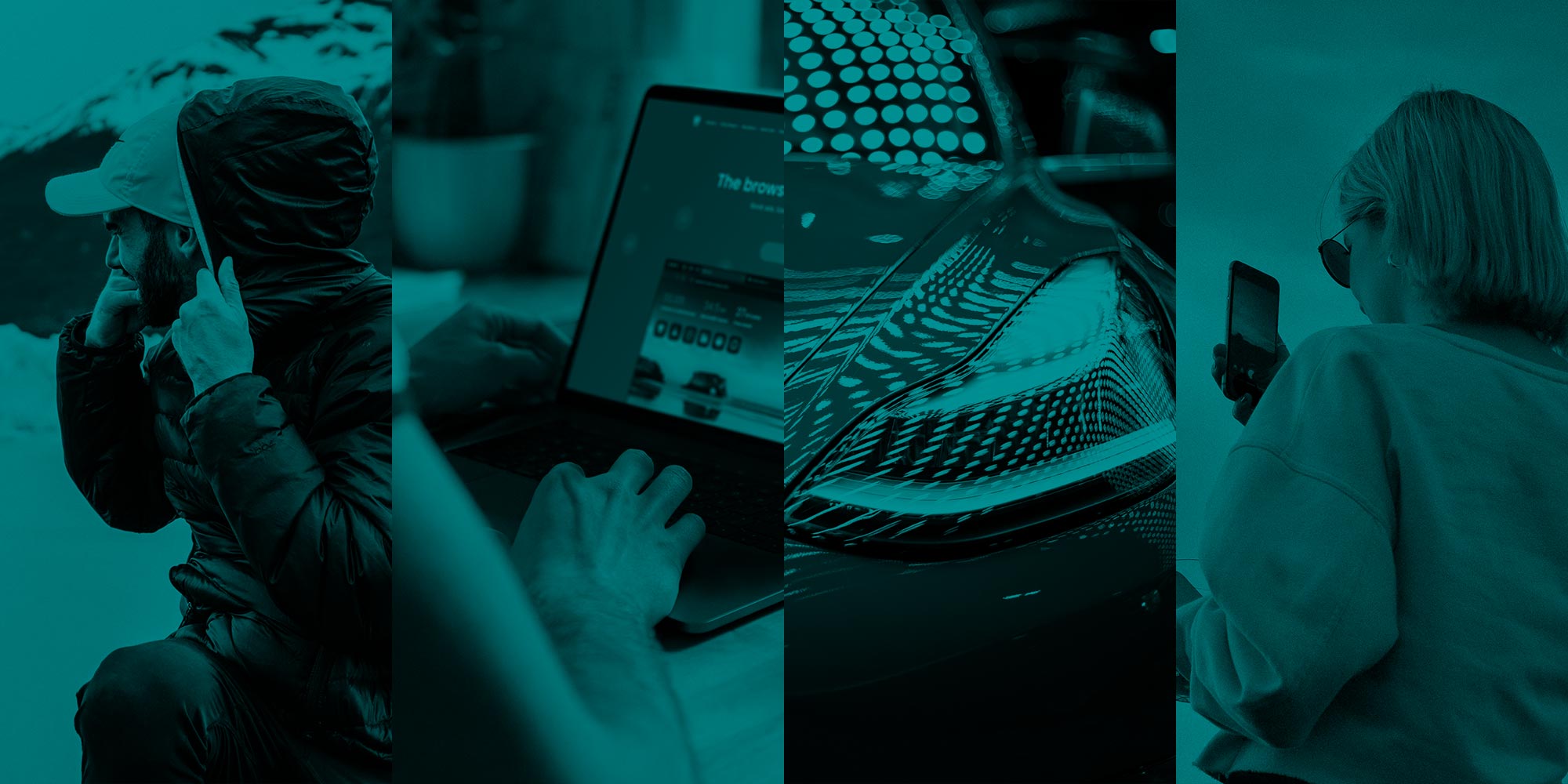We sat down together to talk about our long history of collaboration, our passion for organizations that are doing good in the world, and our goal for our social impact partnership.
[This interview has been edited and condensed.]
How did you two meet? How have you worked together over the past 20 years?
Katie: We met at Autodesk 20 years ago and hit it off right away. In addition to being the start of Beverly’s and my relationship—both professional and personal—Autodesk was interesting because, at a time before sustainability was mainstream, Autodesk was already thinking about it. The company was on the leading edge of sustainable design software for architects and engineers; meanwhile, Beverly and I were learning how to tell those stories to professionals who wanted to design and build for a more sustainable future.
When my daughter was born 16 years ago, I became increasingly committed to buying products for our family that were free of toxins and healthier for our family and the planet. I wanted to be an educated and empowered consumer, so I did a lot of research and really grew my knowledge of what it means to be environmentally sustainable, which ultimately led to our second professional collaboration.
Beverly: I knew about Katie’s focus on healthy products, and when I went to head up marketing at EO, I immediately brought her in. This was my first time working for a B Corp, which are companies dedicated to social and environmental performance. It was a great education. EO had started working with the Environmental Working Group (EWG) to get their family product line certified, and Katie was already familiar with how the EWG guides consumer behavior. She was able to turn our goals for the product line into a compelling story about kids’ health and family choices.

What brought you back together now?
Beverly: I left EO to go out on my own with the intention of expanding my “do good footprint” by helping more socially-minded businesses and organizations. For a few years, I was focused on mental health, working with the Center for Domestic Peace and Headspace Health. It was exciting work and, like you do with your good friends, I shared what I was doing when Katie and I would meet.
Katie: During that year I was focused on developing a global marketing campaign for a European climate NGO, as well as marketing communications in the public education space. And one day I thought, “Why are we not teaming up to do this work together?!”
Beverly: Katie and I are both at stages in our careers where we have not only the expertise but also the freedom to put our energies toward work that is meaningful to us. And something we all feel, but often don’t talk about, is the creative benefits of working with people we trust. So here we are!
Why social impact at this moment in time?
Katie: With respect to the environment, there’s a global urgency today that cannot be ignored. Despite the doom and gloom often associated with climate change, it’s also a time of opportunity. We’re seeing people mobilize. Venture capital and government money is flowing to bring new ideas to market and creativity is flourishing, leading to a variety of solutions that, collectively, could turn the tide.
Doom and gloom marketing is not effective. We need to connect and inspire people; scaring them can drive them away, make them feel hopeless, and move us further from our goals. It’s vital to craft a narrative that inspires people—and to adopt good solutions and practices. The entire environmental movement needs a rebrand from “doom and gloom” to inspiration.
Beverly: There’s also a need for all companies and organizations to be genuine and trustworthy. I’ve been through two tech boom/bust cycles in my career and it’s easy for companies to get lost in their own hype.
Every year the Edelman Trust Barometer report is more disturbing. Trust has broken down in our institutions—we used to look to NGOs and the government for leadership and to solve problems; now people are looking to businesses, particularly local ones, because when trust is low you tend to turn to your own community. As marketers, we can play a huge role in helping businesses build and deepen trust with their customers and communities.
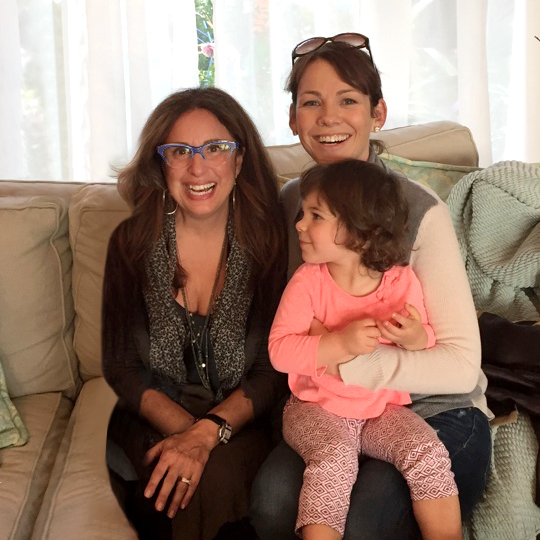
What drives your passion for social impact? What is your ultimate goal with your social impact work?
Katie: When the former President of Brazil, Jair Bolsonaro, was facilitating unprecedented mass destruction of the Brazilian Amazon, my youngest daughter overheard us talking about it and was despondent. She felt she had no voice or agency to stop the destruction. We talked about small things she could do to help the planet and it really seemed to help her to have a voice and to take action.
Around this time, I began working with an incredible organization, AllRise, where we designed and launched a global campaign to drive awareness and engagement around a landmark legal filing they were developing. They ultimately filed a complaint and petitioned the International Criminal Court to charge Bolsonaro with crimes against humanity for his destruction of the planet. I believe that small actions by each of us do add up collectively.
Beverly: There is a place for everyone to be involved in this effort — it’s not for a select few or an elite group. We can each bring our talents to the cause and that includes marketing; perhaps especially marketing since it’s so influential in society. That’s why one of our guiding principles is, “You can’t do everything, but you can do something.”
